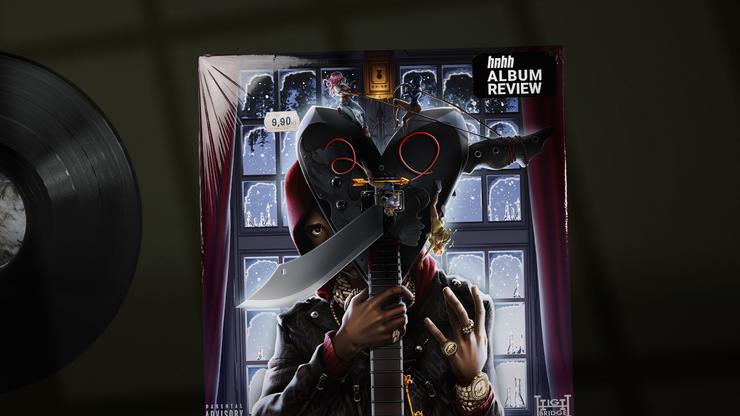It has been said that the Big Apple isn’t for everyone. The city’s arteries breed a certain type of hardened individual. Those who are lightning struck and stride through the treacherous desert of quicksand before somehow reaching a real-life utopia revel in navigating the congo of concrete. Never will they let you forget from where they originated. As the theme to Power reminds: “I gotta make it.” Like Ghost, ’s goal is to be the King of New York. But in his own eyes, he’s both there and not quite there.
His ambition is clearly declared on “King of My City,” stating: “I be feeling like the king of my city, from the Bronx, not Benny.” Here, Boogie uses an analogy of the character Benny Blanco from the 1993 film Carlito’s Way to say he’s no fraud or imposter, but rather the real thing. The 24-year-old might not be ready to boast on it but he’s climbed a long way up that steep metro-mountain. Perhaps the young phenom is finding himself. In “Might Not Give Up” Boogie refers to himself living a “rockstar lifestyle” and says he’s “nothing like a rapper, he’s an artist.” The guitar solo introduces “DTB 4 Life” sounding like something from Nirvana’s early 90s catalog. Yet Boogie’s voice and delivery feel natural. It seems as though we’re trending towards more genreless music and artists transcending labels.
The album’s name reflects his intentions of eclipsing the rapper label. This has been the sentiment of several emcees in the last decade — not wanting to be limited to rap in the traditional sense. Longing to be cradled as artists first. His style is engineered to manufacture hit records. A monster on the hook. An anthem maker. An expedition through risky yet harmonic sound elements. He has discovered a formula of catchy choruses, melodic arrangements, and guitar-driven production while emphasizing the braggadocious style that New York rap is famous for. His versatility has earned him equity in the music game. Boogie has listed among his many inspirations, a claim reflected in the diversity of his fanbase. He plays to this base merging modern rock, R&B, and hip-hop. In his own brand of street gospel, Boogie effortlessly melds brutally blunt messaging on fast life over the undone pavements of Gotham. Breaking the mold shaped by New York’s rappers of the past and a few of the present, Boogie flaunts a style all his own, his bravos on full display.

Jamie McCarthy/Getty Images
No matter how melancholic his sound appears, A Boogie stays true to the central message of overcoming adversity and triumph over circumstances – in his case surviving the disenfranchisement of urban life. The lack of hope in paths that did not include music, insinuating if not for a life of creativity he fears what may have become. He addresses tragedy and quests for love once foiled, a modern-day lyricist tight-roping the line between singer and rapper in the ultimate balancing act. Boogie strands himself in the cables thousands of feet in the air. His confidence allows him to do backflips on that rope. Unbothered and unrequited. Singing his heart out on “Thug Love” and getting introspective on “Me and My Guitar.”
The album has some high-profile and well-placed features: , , . Although the songs with Boogie by himself may be more enjoyable, the overall production and curation hit the mark on a majority of the project. Boogie welcomes artists of the same undefinable ilk in Roddy Rich and yet blends seamlessly with the likes of refined vocalists Summer Walker and Khalid. The most satisfying and stimulating selections on the presentation are “Blood On My Denim” & “Right Back.” Boogie pairs astonishingly, yet blissfully with Lil Uzi on “Luv Is Art.” However, several songs on the album do lack cohesion and come off half-baked. It feels bloated at times and smells like a chart chase. Really no reason for this to be an hour long. There are a few skippable tracks that should’ve never made it out of the editing room. He doesn’t dete enough from song to song to justify this. It can feel like he’s alternating between the same two shells over and over.
Is A Boogie adopting a more mainstream sound or simply expanding his creative bandwidth to manage the influx of new experiences and influences that inevitably come with success? He does not come without his limitations. Not much lyricism. The need to more thoroughly clean up his track selection. I feel there may still be untapped potential which will only come with experience and time. Hopefully, the ambitious creative cross-section merges and we get a classic album. That and only that will jet him into the NYC pedestal. Overall, Artist 2.0 finds him reaching for the throne but mostly coming up with air. Be that as it may, the highs still undoubtedly overshadow the lows and make for a concentrated listening experience.
